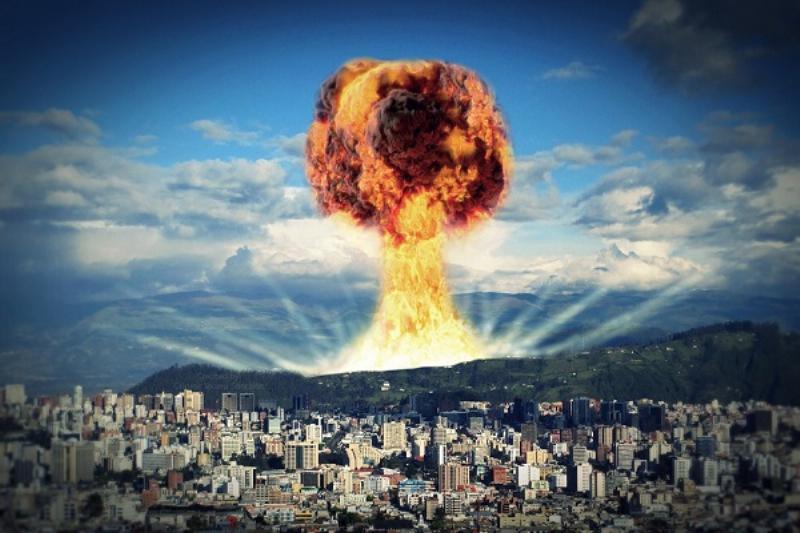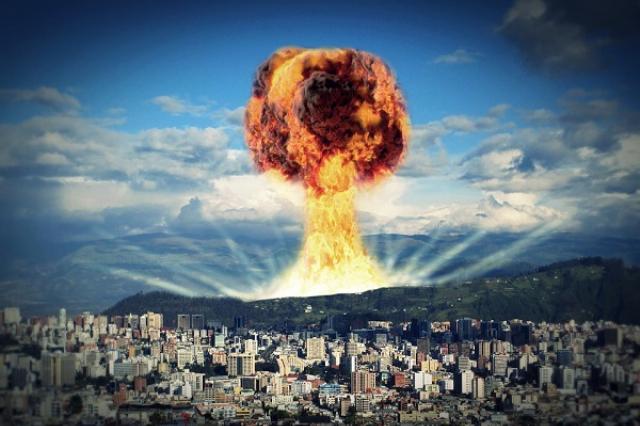


June 6 marks the eighty-first anniversary of D-Day, when Allied troops crossed the English Channel, landed under heavy fire on the beaches of Normandy, and launched the successful campaign to liberate Europe from Nazi control. It was one of the riskiest amphibious assaults in military history — not only because of the size of the operation, but also because everyone on the continent knew that it was coming.
The German High Command anticipated the timing and location of the Allies’ arrival; but for robust counterintelligence measures, brilliant logistical planning, and good fortune, June 6 could easily have become a day synonymous with demoralizing defeat rather than one remembered for heroic sacrifice and bravery. On the other hand, had the D-Day landings failed, a German-controlled Europe might today be celebrating the Nazis’ successful efforts to repel the American, British, and Canadian invaders.
There are moments in history when all the chips are pushed to the center of the table for one consequential hand, and the future is decided accordingly. D-Day was such a gamble, and those who participated ensured Allied victory.
Part of what captures my heart near D-Day’s anniversary is the thought of its terrifying uncertainty. War-planners spent years preparing for the Battle of Normandy, but much was out of their hands. Smart, capable generals appreciated the tremendous risks involved with moving the bulk of their fighting forces in one fell swoop. The troops understood that they might never return home. Boys who had seen little of the world beyond their farms, towns, or boroughs parachuted out of aircraft and jumped out of landing craft to fight and die on foreign soil.
It simply takes the breath away to consider how so many found the courage to meet danger head-on, knowing that they would likely never see their families again. What an awful yet awe-inspiring thing it is for a man to sacrifice himself, so that others might continue living.
And though the historic significance of D-Day is unique, every soldier, sailor, and marine who struggled through the carnage of WWII endured its perils. The average high school student alive today might have seen enough of Saving Private Ryan to understand why we take time to remember those lost on June 6, 1944, but most have only a vague awareness of the even larger amphibious landing during the Battle of Okinawa that began nearly a year later on April 1, 1945.
Along with the bloody fighting of the Guadalcanal Campaign, the Battle of Saipan, and the Battle of Iwo Jima, Japanese resistance around Okinawa included some of the most ferocious hand-to-hand combat of the entire war. In fact, the barbarity in the Pacific War and the realization that an invasion of mainland Japan would come with heavy casualties were major factors in President Truman’s decision to drop two atomic bombs. Imagine how hellish war is to conclude that the use of nuclear weapons is preferable to fighting soldiers and civilians across the Japanese archipelago.
To me, D-Day is a chance to think about not only those we lost during the Battle of Normandy but also those we lost during the entirety of the Second World War. Over 400,000 Americans died in the conflict. Another 700,000 were wounded. As terrible as those numbers are, the global numbers are even more shocking. Some eighty-five million died during WWII. More than fifty million civilians died from military actions, disease, starvation, and crimes against humanity. The absolute depravity required to achieve such numbers is horrifying.
After the surrender of Nazi Germany and Imperial Japan, the survivors looked around at the utter ruin that dotted the map from Europe to the Pacific and concluded that such mass death and suffering could never be permitted again. They witnessed the instantaneous destruction of Hiroshima and Nagasaki and concluded that there must never be a third world war because it would surely be our last. Then, just to make certain that the next war would definitely be our last, the United States and the Soviet Union spent the next fifty years building nuclear arsenals capable of killing everyone on Earth.
Yet here we are eighty years after WWII, and we’re galloping down that black road toward oblivion faster than ever. Apparently too much of the world has been enjoying the comforts of peace for too long to worry about what comes when peace ends. This is difficult to believe. After all, much of the planet has been in a state of war rather recently.
It’s hard to find ground in Africa or the Middle East where the blood of one tribe or another has had a chance to dry. Myanmar’s civil war has been raging in fits and starts since the country first gained independence from the United Kingdom in 1948. After millions of deaths, the Korean conflict has persisted for seven decades. The Yugoslav Wars brought a decade of bloodshed to Europe in the ‘90s. Since the last Great War, Americans have fought in Central and South America, Asia, Africa, Europe, and the Middle East. Independence movements, terrorist cells, communist revolutions, ethnic genocides, religious conflicts, covert proxy wars, and so-called “cold” wars have added to humanity’s butcher’s bill every single year. We humans just can’t stop killing each other, even though we all know where this ends.
Right now much of the West seems desperate to transform the Russia-Ukraine War into a much larger conflagration. This march toward mass death has been at least ten years in the making. European globalists blamed Brexit on “Russian bots.” After President Trump’s victory over Hillary Clinton, Democrat operatives, the corporate news media, and Barack Obama’s espionage chiefs similarly blamed “Russian bots.” While working to elect Joe Biden, fifty-one American Intelligence “experts” lied to the American people by claiming that Hunter Biden’s incriminating laptop had “all the classic earmarks of a Russian information operation.” The European Union is quick to blame popular support for conservative political parties on “Russian disinformation.” Ignoring the unifying spirit of athletic competitions, the International Olympic Committee has continued to ban Russian athletes unless they first repudiate the actions of their own government. Romania annulled last December’s presidential election by blaming “suspected Russian interference.” Whenever citizens in the West push back against illegal immigration, rising crime, censorship, or bureaucratic overreach, the leftist-globalists who control the Western news media and Western capitals all blame Russian “Internet trolls.”
At the same time, U.S.-NATO and the European Union have moved closer to Russia’s borders for the last thirty years. As the West blames Russia for interfering in foreign elections, Western NGOs and espionage agencies have repeatedly done the same thing. In 2014, U.S. and European political leaders explicitly endorsed the removal of the legitimately elected Ukrainian president. Today’s war in Ukraine centers around regions that have repeatedly voted to become a part of Russia and whose people have engaged in fierce fighting against the Ukrainian military. The Ukrainian government could only control these regions in the future by imposing strict and brutal martial law. Still, Western politicians pretend that this regional civil war is about protecting “democracy” and “self-determination.”
I find these arguments unconvincing. When Ukraine targets Russia’s long-range nuclear-capable bombers, I find the West’s partnership with Ukraine imminently dangerous. Although Russian news media have so far placed the blame entirely upon Ukraine’s government, there is plenty of online chatter that Western Intelligence services might have assisted in the operation. If that doesn’t fill you with enormous dread, it should.
With D-Day here to remind us about the extraordinary cost of war, please take a moment to pray for peace. Thoughtful people will disagree. But we should all wish to avoid the Armageddon of WWIII.

Image: CristianIS via Pixabay, Pixabay License.
